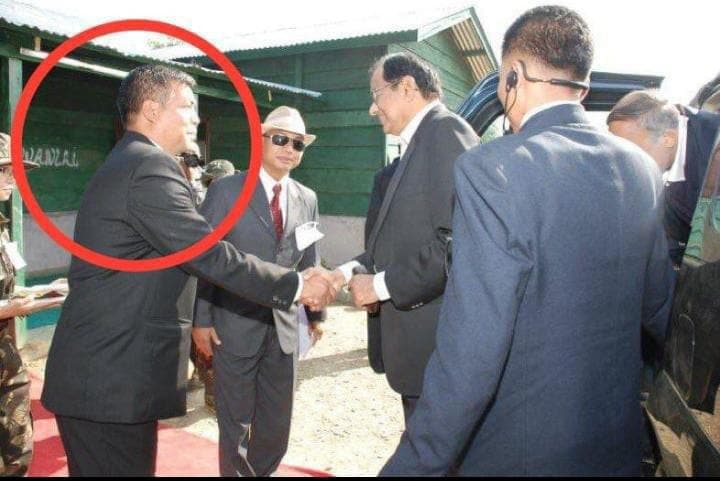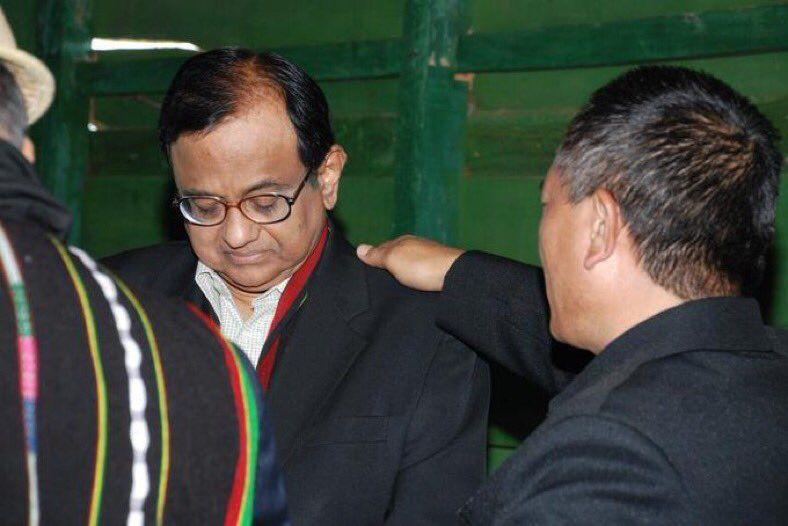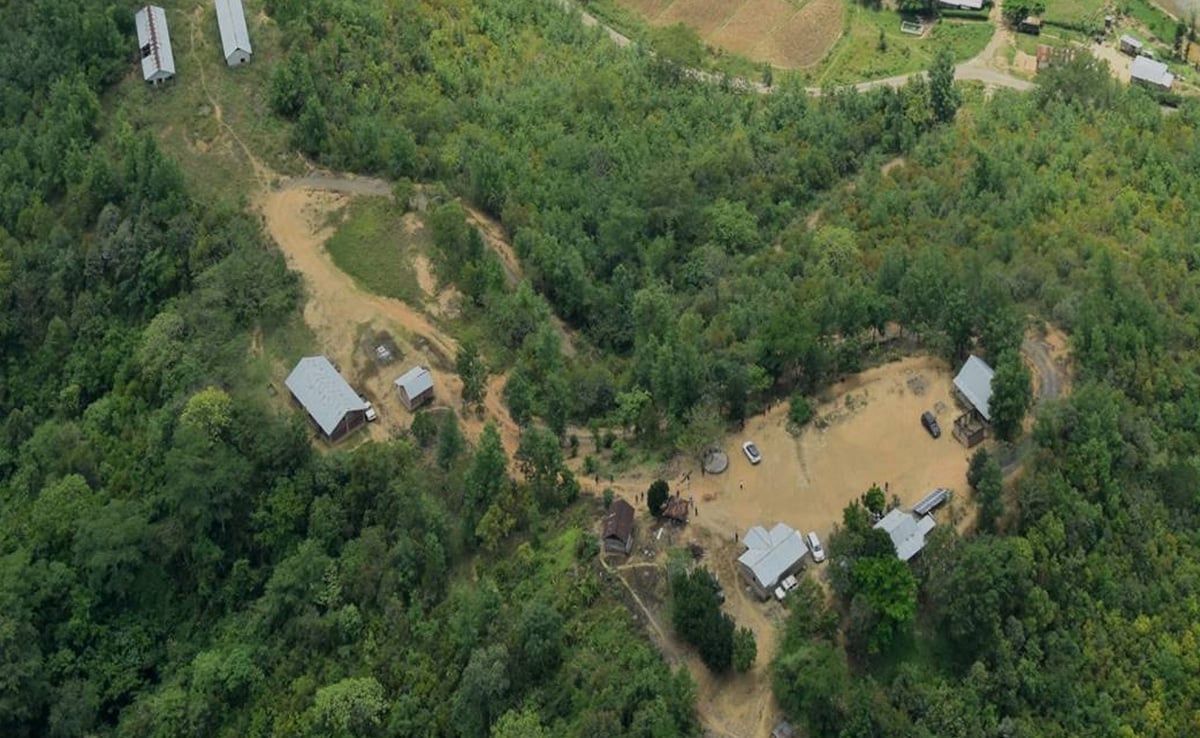Manipur Chief Minister N Biren Singh today blamed "some vested interests" for reigniting a new cycle of violence in the state, after having been relatively peaceful for three-four months, and criticised Congress leader P Chidambaram as someone who "created the present crisis".
Mr Singh's frontal attack came hours after Mr Chidambaram in a post on X suggested "the Meitei, the Kuki-Zo and the Naga can live together in one state only if they have genuine regional autonomy", and blamed the Chief Minister for causing the crisis.
Mr Chidambaram, however, removed the post after Manipur Congress chief Keisham Meghachandra requested him to delete it , amid the volatile situation in Manipur.
"Please delete this post. Manipur is in turmoil (sic) situation. It is very sensitive," Mr Meghachandra replied to Mr Chidambaram, a request that the Congress MP seemed to have accepted as the post no longer remained on his timeline.
Mr Chidambaram's comment is his personal observation and does not reflect the stand of the party, Congress leader and former Manipur Chief Minister O Ibobi Singh told reporters in Imphal today.
Shri Okram Ibobi, CLP leader along with other party leaders, spoke to the press today in Imphal to clarify the position of the party on the issue of regional autonomy. pic.twitter.com/0N8bytgvCI
— A. Bimol Akoijam (@Bimol_Akoijam) November 19, 2024
While the valley-dominant Meitei community has been seeking protection of Manipur's territorial integrity, the Kuki tribes want a 'separate administration' comprising a large part of the hill areas in southern Manipur which shares a border with Myanmar (and some areas in the north), and the Nagas have had ambitions earlier to be united with all Naga-inhabited areas in the northeast region. The Kuki tribes share ethnic ties with people in Myanmar's Chin State and Mizoram – both Manipur's neighbours.
The Chief Minister, who has been battling ethnic fires in a fresh cycle of violence that broke out in the state’s Jiribam district that has so claimed over 19 lives including women and children, took strong exception to Mr Chidambaram’s swipe.
Mr Chidambaram was the Union Home Minister under the United Progressive Alliance (UPA) government in 2008 when he steered the highly controversial tripartite suspension of operations (SoO) agreement between over a dozen Kuki-Zo militant groups on one side and the Centre and the state government on the other, the Chief Minister told news agency ANI in the state capital Imphal on Tuesday. The Congress was also in power in Manipur at that time.
"I will say it openly. When he (Mr Chidambaram) was the (Union) Home Minister in the then Congress government, here in Manipur (Congress's) O Ibobi was the Chief Minister. During their time, they brought a Myanmarese foreigner, Mr Thanglianpau Guite, a Myanmar-born who himself admitted in an interview that he contested an election for MP in Myanmar. That person is the chairman of the Zomi Revolutionary Army (ZRA) based in Myanmar," Mr Singh said.
"I am surprised how Mr Chidambaram – there is a photograph, there is Chidambaram, then Union Home Minister, and here is Thanglianpau Guite, the chairman of the Zomi Revolutionary Army, who is from Myanmar – they never cared about people from the northeast, about indigenous people," Mr Singh said, holding up an enlarged photo with a red circle on who Mr Singh said was Thanglianpau Guite seen shaking hands with Mr Chidambaram in a black suit.

"The present crisis is not an ethnic conflict. It is a problem of illegal immigration from Myanmar with drugs and them trying to control the indigenous people of Manipur, and in the entire northeast. I find it funny to see his (Mr Chidambaram's) comment. I want to remind him, with these photographs, why he allowed these foreigners to enter India, to enter Manipur and even sign suspension of operations agreement with underground groups of illegal immigrants," the Chief Minister said.
"He (Mr Chidambaram) and the Congress created the crisis. What we are facing today in Manipur is their creation. They cannot wash off their hands easily. People do understand, whatever is happening in Manipur is a chronic problem created by Congress and Chidambaram himself. Here are the photographs," Mr Singh said, adding allegations and propaganda by national leaders should stop.
"I want to appeal to him, do not play more destructive games to destabilise Manipur and the entire northeast. Congress leaders should look at themselves that happened in Manipur during their time. How many were killed in fake encounters? There are 1,500 cases of Manipur fake encounter cases in the Supreme Court… Chidambaram himself came, gave recognition to a foreigner and signed the SoO agreement. You started the work of bringing illegal immigrants from Myanmar. You cannot escape," Mr Singh said.

Those who have been tracking the Manipur ethnic violence say the SoO agreement is at the heart of the current crisis, apart from frictions over sharing land and resources, and tussle over political representation.
Ibobi Singh, the former Manipur Chief Minister, in the state assembly on March 1 admitted that the Assam Rifles and Kuki-Zo insurgent groups signed an agreement in 2005 – without informing the state government.
"The two signed the agreement without the knowledge of the Manipur government. The police continued to arrest the insurgents, and in 2008 the formal SoO with the state government's participation was signed," Ibobi Singh told the assembly. The state government discovered the existence of the 2005 "ceasefire" agreement when, during police operations against Kuki-Zo insurgents, the state forces were often requested to stand down, he said.
READ | End Ceasefire With All Kuki-Zo Insurgent Groups: Manipur Assembly Unanimous Resolution
The Manipur assembly on February 29 unanimously passed a resolution asking the Centre to scrap the SoO agreement with some 25 Kuki-Zo insurgent groups. The deadline for extension of the SoO agreement ended the same day. Whether the SoO agreement has been renewed is not known. The deaths of 10 "militants" in Manipur's Jiribam in an encounter with the Central Reserve Police Force (CRPF) may give some clues.
Broadly, the SoO agreement says the insurgents are to stay at designated camps and their weapons kept in locked storage, to be monitored regularly.

The over two dozen Kuki-Zo insurgent groups come under two umbrella groups – the Kuki National Organisation (KNO), and the United People's Front (UPF). These two representing the others have signed the SoO agreement.
Meitei leaders have alleged the SoO groups have been working to strengthen themselves over the years by taking advantage of the ceasefire, until a time came to engineer a violent attack for a separate land. Geopolitical analysts have speculated the Kuki armed groups were used as mercenaries to fight Meitei and Naga militants operating in the India-Myanmar border.
While the National Socialist Council of Nagaland (NSCN) has been in talks with the Centre for over two decades, only one Meitei militant group faction has agreed to sign a deal with the Centre i.e. the United National Liberation Front (Pambei), or UNLF(P).
At least eight Meitei militant groups that are fighting to break away from India are in the Centre's banned organisations' list.
The only time any authority in Manipur admitted to the involvement of insurgent groups of both the Meitei community and the Kuki tribes was on September 9, after five bodies were found following a fierce gunfight. Three of the bodies were confirmed as Kuki insurgents from Churachandpur district; the fourth was identified as a Kuki volunteer from Jiribam; the fifth was identified as a member of the Meitei insurgent group United National Liberation Front (Pambei), or UNLF(P), the police had said in a statement.
The three Kuki insurgents were members of the Kuki Liberation Army (KLA), a signatory of the SoO agreement. The UNLF(P), too, had signed a ceasefire deal with the Centre and the state government. The UNLF is the oldest Meitei insurgent group, which later broke up into two factions; the Pambei faction signed a tripartite peace agreement with the Centre and the state government in November 2023.
Kuki leaders have alleged the Manipur Chief Minister is responsible for starting violence with his rhetoric on illegal immigrants and poppy cultivation. A purported leaked tape of Mr Singh, submitted to a Home Ministry inquiry committee by some witnesses, which allegedly proved his direct role in the violence, will be taken up by the Supreme Court in the next hearing on November 25. In the last hearing, the Supreme Court told the petitioner to bring the material for checking.
There are many villages of the Kuki tribes in the hills surrounding the Meitei-dominated valley. The clashes between the Meitei community and the nearly two dozen tribes known as Kukis – a term given by the British in colonial times – who are dominant in some hill areas of Manipur, has killed over 220 people and internally displaced nearly 50,000.
The general category Meiteis want to be included under the Scheduled Tribes category, while the Kukis who share ethnic ties with people in neighbouring Myanmar's Chin State and Mizoram want a separate administration carved out of Manipur, citing discrimination and unequal share of resources and power with the Meiteis.

